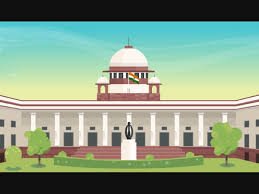The petitioner received a show cause notice (SCN) from the Commissioner, CGST, Delhi East Commissionerate (Respondent No. 1) under Section 73 of the Central Goods and Services Tax (CGST) Act, 2017, for the tax period April 2020-March 2021. The SCN was issued due to alleged undeclared net tax and excess Input Tax Credit (ITC) claims.
Before the SCN, a search was conducted at the petitioner’s premises by officers of Respondent No. 1 under Section 67(2) of the CGST Act. Subsequently, summonses were issued under Section 70 of the CGST Act to four directors on 16.01.2025 and again on 23.01.2025 to produce documents.
The petitioner filed a writ petition before the High Court, arguing that Respondent No. 2 (Delhi East Commissionerate) lacked jurisdiction to issue summonses under Section 6(2)(b) of the CGST Act because Respondent No. 1 was already investigating the same “subject matter”.
The High Court dismissed the writ petition, holding that summonses under Section 70 were merely a preparatory step for investigation, not the “initiation of proceedings” that would bar another authority under Section 6(2)(b).
Law Involved:
Navigating the GST Landscape The core legal question revolved around the interpretation of:
Section 6(2)(b) of the CGST Act, 2017: This section aims to prevent parallel proceedings by stating that if a proper officer under the CGST Act has initiated any proceedings on a “subject matter,” no proceedings shall be initiated by an officer under the State/Union Territory GST Act on the same subject matter.
Section 70 of the CGST Act: Empowers a proper officer to summon individuals for evidence or document production during an inquiry or investigation.
Circular dated 05.10.2018: This crucial circular, issued by the Central Board of Indirect Taxes & Customs (CBEC), provides guidelines on cross-empowerment and jurisdiction, emphasizing harmony and cooperative federalism in GST administration to ensure a “single interface” for taxpayers. It specifies that once “intelligence-based enforcement action” is initiated by one authority, that authority should ideally complete the entire process.
Key Concepts Debated:
“Initiation of proceedings”: When do formal proceedings truly begin?.
“Subject matter”: What constitutes the “same” subject matter to trigger the bar under Section 6(2)(b)?.
“Inquiry” vs. “Investigation” vs. “Proceedings”: The distinction between these terms and their legal implications.
Reasoning:
Unpacking the Supreme Court’s Logic The Supreme Court analyzed the varying High Court interpretations and the intent behind the GST framework:
Summons as Preparatory Steps: The Court clarified that issuance of summons under Section 70 for inquiry or investigation is generally a preparatory step for gathering information and does not, by itself, constitute the “initiation of any proceedings” within the meaning of Section 6(2)(b).
Meaning of “Initiation of Proceedings”: This phrase refers to the formal commencement of adjudicatory proceedings, such as the issuance of a show cause notice (SCN) under Section 73 or 74 of the CGST Act. Only upon the issuance of an SCN does the bar under Section 6(2)(b) typically apply, preventing parallel adjudication on the same subject matter.
Meaning of “Subject Matter”: The “subject matter” pertains to the tax liability, deficiency, or obligation arising from a specific contravention. For the “subject matter” to be considered “same,” there must be an identical tax liability or alleged offense, and the demand or relief sought must be identical.
Harmony and Single Interface: The GST regime envisions a single interface for taxpayers to avoid harassment from multiple authorities investigating the same matter. The Circular dated 05.10.2018 is meant to foster this cooperation and prevent overlapping jurisdiction, especially in intelligence-based enforcement actions.
No Bar on Inquiry/Investigation: An inquiry or investigation initiated by one authority does not automatically bar another authority from conducting an inquiry or investigation if the “proceedings” (i.e., SCN) have not been formally initiated. However, once an authority initiates an intelligence-based enforcement action, it should ideally complete it to its logical conclusion to maintain the principle of harmony and cooperative federalism.
Holding:
The Supreme Court held that:
The expression “initiation of any proceedings” in Section 6(2)(b) refers to the formal commencement of adjudicatory proceedings, specifically the issuance of a show cause notice.
Intelligence-based enforcement action can be initiated by any one of the Central or the State tax administrations, with the taxpayer administratively assigned to the other administration.
Parallel proceedings should not be initiated by other tax administration when one of the tax administrations has already initiated intelligence-based enforcement action.
The issuance of summons under Section 70 does not, in itself, constitute the initiation of proceedings that would bar another authority under Section 6(2)(b) of the CGST Act.
M/S ARMOUR SECURITY (INDIA) LTD V. COMMISSIONER, CGST, DELHI EAST COMMISSIONERATE & ANR.
Supreme Court: 2025 INSC 982 (DoJ 14-08-2025)






